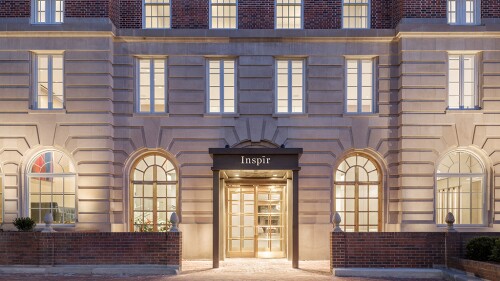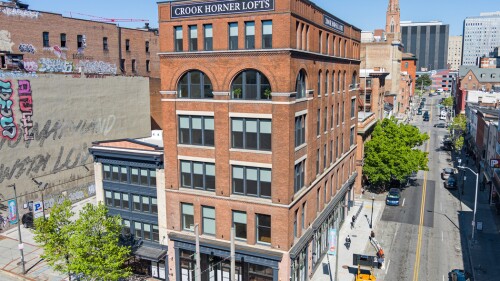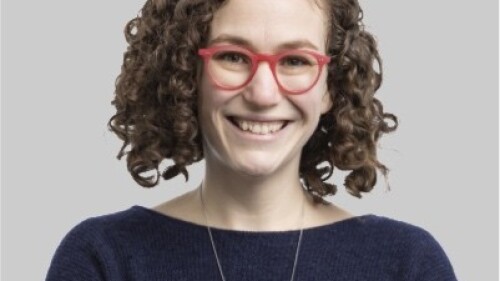Ten years ago, ULI Colorado launched its Real Estate Diversity Initiative (REDI). The grass-roots program has become a model within the Institute for fostering education and career opportunities for people of color and women that is now poised for national growth. In 2015, ULI Minnesota reached out to ULI Colorado for guidance on launching their own program. Through ULI Minnesota’s partnership with United Properties, the program secured funding for both the Minnesota and Colorado programs.
ULI is leveraging a grant from the Robert Wood Johnson Foundation to expand the REDI program throughout its network of district councils in the United States. Earlier this month, ULI announced four grant winners that include St. Louis, Kansas City, Memphis, and Indiana. Each will receive a $20,000 grant spread over two years that will help them launch their own REDI programs. ULI is also using grant funds to provide additional resources to all of its district councils, including a REDI guide and quarterly informational conference calls.
“This national grant that is now available is a huge opportunity for other district councils to have the funding that they need to begin to launch this program,” says Marianne Eppig, manager of ULI Colorado—and one of the more than 300 graduates of Colorado REDI. Both the Colorado and Minnesota councils have worked closely with ULI to create the REDI guide that gives other councils a framework for starting their own programs.
“We are absolutely thrilled that we won a grant. The REDI program seems to be a wonderful next step for our work in equity, which in St. Louis has grown into what we’re calling our Equitable Communities Initiative,” says Kacey Cordes Mahrt, chair of Mission Advancement at ULI St. Louis and vice president, assistant director of Project Management, Affordable Housing at U.S. Bancorp Community Development Corporation in St. Louis.
Building diversity is an issue that moved to the forefront in St. Louis following the 2014 police shooting in Ferguson, Missouri, and the subsequent protests both in Ferguson and throughout the state.
Missouri’s governor created the Ferguson Commission, which released a comprehensive report and call to action that included a list of objectives aimed broadly at improving racial equity throughout the state. ULI St. Louis took that to heart and started looking for ways that it could make a positive social impact. “We absolutely need to cultivate a group of developers of color and women to really help us get the big regional work done than is needed, meaning organic redevelopment of so many neighborhoods and pockets of the city that we currently don’t have the capacity for,” says Cordes Mahrt.
The grant will layer on top of work that ULI St. Louis has been doing to build relationships with stakeholders in community development. The council is currently taking applications, lining up mentors and speakers, and identifying development sites to serve as case studies for its first REDI class of 30 that will start this fall. “It is so exciting and cool to see the response to the program just in conversation during meetings around town,” says Cordes Mahrt. “People are just thrilled that ULI is providing leadership here.”
Providing Hands-On Learning
In Colorado, the idea to create a diversity initiative originated as an education and mentorship program that would serve people of color and women. ULI Colorado partnered with the Denver Office of Economic Development and also applied for and received a $15,000 ULI Foundation grant to help seed the program.
Three years later, they added a hands-on learning component that gave participants an opportunity to develop hypothetical real estate plans for real-life examples, specifically in “Jump Start” neighborhoods where the city wished to direct reinvestment. “From that point, the program really took off because we really gave the students something tangible to do, which was to come up with project proposals for these sites,” says Michael Leccese, executive director of ULI Colorado. Participants in the program are split into teams, with each team coming up with a detailed site plan, design, financial pro forma, and marketing plan.
To date, ULI Colorado’s REDI students have completed seven study sites. Not only do the students benefit from working through all the different aspects of a redevelopment project, but the sites also benefit, adds Leccese. “Our program sheds light on these development opportunities and there has since been positive development or proposals at all of these sites,” he says.
Colorado and Minnesota will be sharing best practices and lessons learned from their own experiences with the REDI program. One of the things that ULI Colorado strives to do is curate a mix of participants from different backgrounds so that there is not an imbalance from one sector, such as architecture and design. It also is important to pick good case study projects. Sites that are too large can be overwhelming, and sites that are too small may not be able to provide enough discussion and project work.
ULI Minnesota makes a point of recruiting panelists and speakers who are women or people of color when possible. “We realized quickly that it was very important to have more of our faculty reflect the participants in the program,” says Aubrey Albrecht, senior director of ULI Minnesota. Both councils have found that REDI graduates have returned as resources to help guide others through the program.
The REDI guide also gives district councils the flexibility to shape programs according to their goals or needs. For example, Minnesota’s curriculum does cover the basics of teaching hard and soft skills of developing a project. Panels and speakers throughout the 13-session course delve into topics such as understanding construction costs and financial feasibility. However, the program also has a strong emphasis on building relationships to help advance the careers of participants. “Part of the aim of REDI is to help professionals to expand on their networks through the many mentors, facilitators and other industry experts who give their time and expertise to the program,” says Albrecht.
REDI has generated success stories for graduates, including opening doors for new opportunities or new career paths within real estate. Another measure of success has been watching the graduates who have stayed with ULI become volunteers, get involved with communities, and really help drive impactful change within the organization, adds Leccese. Participants pay a nominal fee of $250 to $300, which includes a textbook and meeting sessions along with a free one-year ULI membership after completing the program.





